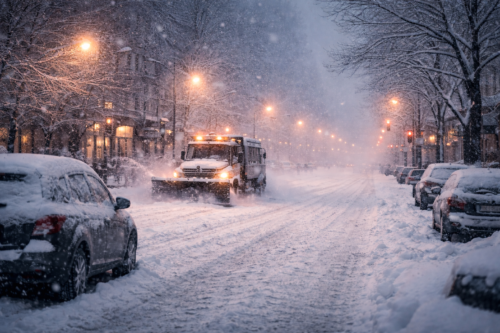How to Prevent Pipes from Freezing this Winter
Taking steps to prevent pipes from freezing this winter is crucial for any home or business owner. The consequences can be devastating when temperatures drop below a certain point.
When pipes freeze, you have more to worry about than no running water. At the freezing point, the volume of frozen water increases by about 11%, which places tremendous pressure on the plumbing. No matter the strength of the material, this expansion will cause it to burst. This can cause significant water damage in your home and cost you thousands in repairs and replacement of personal belongings. So, what can you do?
We asked the water damage restoration specialists at SERVPRO of Cape May & Cumberland Counties about the steps you can take to prevent pipes from freezing this winter. Here are four of their recommendations.
Prevent Pipes from Freezing with These Tips
#1: Allow faucets to drip
When temperatures are expected to drop to 28 degrees or below for more than four hours, you’ll want to let the faucets around your home drip at a slow rate. According to the Franchise Professionals at SERVPRO of Cape May and Cumberland Counties, this helps relieve pressure in your plumbing and keeps water in motion, so it’s less likely to block up and freeze. It’s an even better idea to slightly turn on both the hot and cold taps or to set a single-handle faucet to warm.
#2: Keep the heat on
It may be tempting to turn that thermostat way down (or even off) when you’re not home for hours or even days. But by keeping the heat on in your home, you can help prevent pipes from freezing. SERVPRO recommends setting your thermostat above 50 degrees. This should provide enough heat to keep water from freezing in pipes or from forming blockages.
#3: Keep interior doors open
In addition to allowing your faucets to drip and keeping your heat on, it’s a good idea to keep interior doors open when temperatures drop. Many pipes are located under cabinets, and leaving the cabinet doors open allows more heat to enter the area. SERVPRO also suggests keeping all other interior entry doors open so circulation of heat is more evenly distributed throughout your home.
#4: Properly insulate pipes
Adding extra insulation to pipes in areas without proper insulation, such as your basement, can also help prevent pipes from freezing in the winter. Fitting exposed or poorly insulated pipes with foam or rubber sleeves are a good solution for helping pipes retain warmth.
If you’ve experienced a burst pipe or flooding in your home or business, the water damage restoration specialists at SERVPRO of Cape May & Cumberland Counties offer 24-hour emergency services. They will extract the water and dry the area to mitigate the potential for mold growth. Contact a Franchise Professional today to learn how they can help: 609.624.0202.







